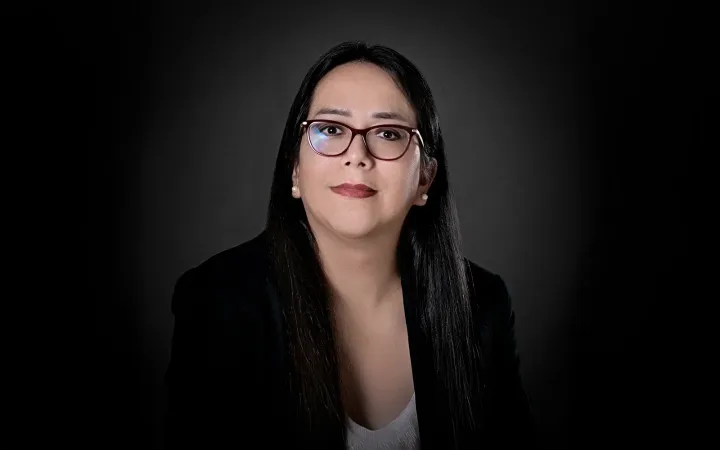Por Sofía Guadarrama Collado
En las últimas semanas, los aranceles impuestos por Donald Trump han dominado los titulares a nivel mundial. La narrativa —en su mayoría— se ha volcado en contra del presidente de los Estados Unidos, quien se ha propuesto rescatar la economía de su país de las garras de China.
La estrategia consiste en:
· Recaudar billones de dólares por medio de los aranceles y reducir la deuda federal ($37 billones de dólares) y refinanciarla. Esta semana, el presidente Donald Trump informó que, con los nuevos aranceles están recaudando aproximadamente 2,000 millones de dólares diarios.
· Forzar a la Reserva Federal a bajar los tipos de interés.
· Reducir los costos de las hipotecas.
· Reventar los mercados, aunque eso afecte a los Estados Unidos, para doblegar a los gobernantes de los países y obligarlos a negociar.
· Pero principalmente que fijen sus monedas al dólar y que le compren a Estados Unidos y no a China.
Para muchos, Donald Trump está enloqueciendo. La realidad es que no. Eso sí, está desesperado por salvar a su país del gigante asiático.
Hace cien años, China estaba saliendo de lo que llamaron el siglo de la humillación. Luego llegó la fundación de la República Popular China en 1949, la cual hundió a sus ciudadanos en la miseria.
Hasta 1970, China era una economía agrícola empobrecida y aislada. La gente vivía en casas de barro y techos de paja. No tenía televisores ni refrigeradores. Una persona que poseía una bicicleta era considerada rica. China era tan pobre que más de 700,000 chinos intentaron cruzar nadando el río Zhū Jiāng a Hong Kong, que entonces era una colonia inglesa, donde podían ganar cien veces más que en Cantón o Dongguan en el sur de China. Sólo 140,000 lograron cruzar.
Entonces entró al escenario político Deng Xiaoping, quien nunca fue jefe de Estado. Nacido en 1904, en Sichuan, China, Deng Xiaoping, se convirtió en Líder supremo de facto de China en 1978 hasta los años 90.
Deng Xiaoping vivió en Francia, entre 1920 y 1925, cuando era joven, trabajando en fábricas de locomotoras, metalurgia y caucho, lo cual le abrió el panorama mundial, que la mayoría de los chinos desconocía, pues la propaganda gubernamental, les aseguraba a los chinos que la vida en occidente era terrible. Aunque vivió en Francia, no gozó de lujos, lo cual le dejó una gran enseñanza sobre el capitalismo. Entonces adoptó el marxismo-leninismo como guía para transformar a China.
En 1926, viajó a la Unión Soviética para estudiar en la Universidad Sun Yat-sen para trabajadores del Este.
A su regreso a China, inició su carrera en el Partido Comunista Chino. No obstante, su crecimiento político fue muy complicado, pues en los 50 se atrevió a criticar las políticas de Mao Zedong, quien lo acusó de ser un «capitalista infiltrado», lo destituyó de su cargo, lo exilió del partido y lo mandó a trabajar a una fábrica en Jiangxi, reparando tractores. No obstante, Deng mantuvo su lealtad al partido.
En 1976, murió Mao y lo sucedió Hua Guofeng, pero Deng regresó a la política y se convirtió en jefe del partido y el líder de facto de China, aunque formalmente no ocupó los máximos cargos. Gobernaba desde las sombras, pero con total autoridad.
Deng Xiaoping —sí, el responsable de la represión violenta de las protestas estudiantiles en la Plaza de Tiananmén — se convirtió en el arquitecto de la China moderna: impulsó reformas a la educación y la ciencia. En 1977 se implementaron los primeros exámenes de ingreso para las universidades. Acudieron 5.7 millones y sólo menos del 5% fueron admitidos.
También reformó el sistema legal y el sistema de gobierno; desmanteló las comunas rurales; permitió la agricultura individual; autorizó negocios privados; atrajo inversión extranjera, abrió zonas económicas especiales e impulsó las reformas económicas que transformaron a China de una economía comunista cerrada a una mezcla de socialismo con capitalismo de mercado con planificación estatal estratégica. En otras palabras: una dictadura con apertura económica. Convenció al partido de la importancia de entrar al mercado global con la frase: «No importa si el gato es blanco o negro, mientras cace ratones». Crearon el liderazgo colectivo.
En los años 80 se llevó a cabo la política de reforma y apertura. Se permitió el florecimiento de la empresa privada. Los micro negocios callejeros pudieron formalizarse al convertirse en empresas millonarias. En los años 90, China envió a más de 200 mil estudiantes a universidades en Estados Unidos, con el riesgo de que no regresaran.
Deng Xiaoping murió en 1997, a los 92 años de edad. Entonces, Jiang Zemin fue nombrado Secretario General del Partido Comunista Chino y en el 2001 estuvo a cargo de integrar a su país a la Organización Mundial del Comercio (OMC), con lo cual China se convirtió en la «fábrica del mundo», con costos inexplicablemente bajos. Y claro, el mundo se volcó a las fábricas chinas.
El gobierno de Hu Jintao, de 2002 a 2012, invirtió en el desarrollo del talento, creación de universidades de alto nivel, infraestructura, urbanización, transporte, carreteras, trenes de alta velocidad, puertos, energía (hidroeléctricas, plantas nucleares y la creación de nuevas ciudades y apoyo estatal a empresas tecnológicas y empresas privadas bajo vigilancia estatal.
China dejó de ser un país pobre y su población se convirtió en clase media con altos niveles de educación. La China caótica en la que los automovilistas se pasaban los altos de los semáforos y se gritaban entre sí, quedó en el pasado.
«No es la conciencia del hombre la que determina su ser, sino, por el contrario, el ser social es lo que determina su conciencia», Karl Marx.
China pasó de ser un país manufacturero a un país de clase media y alta. El PIB se multiplicó en cuarenta años. En 1985, el Producto Interno Bruto de China fue de aproximadamente 309,842 millones de dólares estadounidenses. En 2024, fue de aproximadamente 18.3 billones de dólares estadounidenses. En 2024, el Producto Interno Bruto de Estados Unidos fue de aproximadamente 29.18 billones de dólares estadounidenses.
En marzo de 2018, Xi Jinping cambió la constitución de China, para convertirse en presidente vitalicio, y no sólo eso, ostenta los cargos de líder real de China, Presidente de la República Popular China, Presidente de la Comisión Militar Central y Secretario General del Partido Comunista Chino.
Hoy en día a China ya no le interesa importar la tecnología de empresas extranjeras. Ahora se enfoca en desarrollar su propia tecnología.
En 1949, cuando se fundó la República Popular China, la red ferroviaria tenía aproximadamente 22,000 kilómetros. En 1985, tenía aproximadamente 55,000 kilómetros. En 2024, alcanzó una longitud total de 162,000 kilómetros. 48,000 kilómetros correspondían a líneas de alta velocidad.
China emprendió una guerra ideológica en la que pretende expandir el comunismo en todo el mundo. Con «la nueva ruta de la seda», con lo cual pretende crear un nuevo continente, «Eurasia», y acelerar el comercio chino en tiempo récord, por medio de la construcción de rutas de transporte en vías férreas de China, a través de Asia hasta Europa y África; y por mar hasta Latinoamérica. Asimismo, está dando créditos a más de 60 países o invirtiendo en infraestructura.
Planea crear un nuevo orden mundial: comenzando por la creación de una gran unidad global y sus propias cumbres: Foro de la Franja y la Ruta para la Cooperación Internacional, Cumbre China-Asia Central y Cumbre China-África.
Xi Jinping se presenta como el defensor de los pueblos africanos. Promueve su modelo político llamado «la solución china», cuya bandera impulsa el derecho al desarrollo económico. Los países africanos que por siglos fueron oprimidos y explotados por los europeos y los norteamericanos, hoy son auxiliados (y explotados) por China. En lo que lleva de gobierno, Xi Jinping ha establecido acuerdos económicos o alianzas con más de 150 países, reflejando su estrategia para expandir su influencia económica y diplomática a nivel global. Se ha planteado superar el poder militar de los Estados Unidos en el año 2049.
Suscríbete para leer la columna completa….




